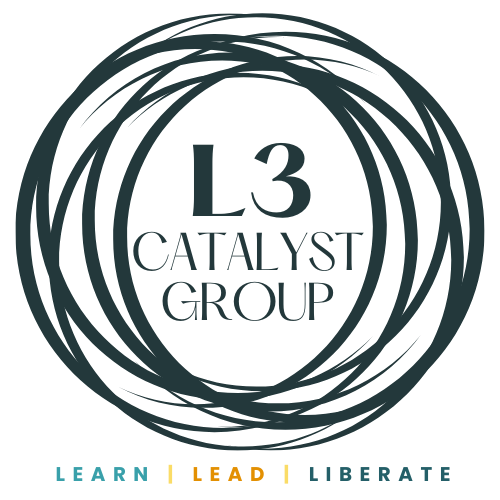Don't check out.
I invite you into this space if are a person with identities that bring you privilege.
Today is the US holiday to honor the Reverend Doctor Martin Luther King Jr.
Today is President Trump's inaguration day.
If you struggle with the tension between these two things, this blog is for you.
If you wonder what to DO, this blog is for you.
If you feel lost, I hope this blog helps you rest and act.
You aren't alone.
What do you mean rest? Now?
- Rest in the truth that many people light our path and show us the way. You don't need to KNOW the answers, DO all of the things, and BE the fixer. Rest in the wisdom and guidance of the helpers and healers. Here's an example from Kelly Robinson, the President of the Human Rights Campaign.

- If you don't know how to help, keep your eyes open, really open. When we pause and listen, opportunities to act for justice and show love are everywhere. Don't give up on yourself or others.
- Love and liberation are evidenced everywhere. Don't miss the signs. Don't stop working for justice, love and liberation. Now is exactly when we need you. We need each other.
- Rest yourself. Pause. Think. Listen. Watch the birds. Enjoy the sun. Laugh. Listen to the wind. Feel joy. Take a nap. Feel your body. These are ways we heal, deepen, hold joy, and truly live.
We people with privilege didn't create systems that bring us benefits based on our identity, but neither are we free to opt out of working for justice. This is a call-in for us with power to do our work and not lose hope.
First, let's ground in the un-whitewashed words of the Reverend Doctor Martin Luther King Jr.
While Rev. Dr. Martin Luther King Jr.'s words are often warped and wielded as a tool of white supremacy, the following are reminders of his message of justice.
“Freedom only comes through persistent revolt, through persistent agitation, through persistently rising up against the system of evil.”
— Rev. Dr. Martin Luther King Jr.

“I must confess that over the past few years I have been gravely disappointed with the white moderate. I have almost reached the regrettable conclusion that the Negro’s great stumbling block in his stride toward freedom is not the White Citizen’s Counciler or the Ku Klux Klanner, but the white moderate, who is more devoted to ‘order’ than to justice; who prefers a negative peace which is the absence of tension to a positive peace which is the presence of justice; who constantly says: ‘I agree with you in the goal you seek, but I cannot agree with your methods of direct action’; who paternalistically believes he can set the timetable for another man’s freedom; who lives by a mythical concept of time and who constantly advises the Negro to wait for a ‘more convenient season.’ Shallow understanding from people of good will is more frustrating than absolute misunderstanding from people of ill will. Lukewarm acceptance is much more bewildering than outright rejection."
Letter from Birmingham Jail, Rev. Dr. Martin Luther King, Jr., 16 April 1963
Second, Dr. Anneliese A. Singh's Racial Healing Handbook provides key actions and approaches for white people to practice anti-racism.
The Racial Healing Handbook offers practical strategies for white people who are committed to becoming antiracist and foster racial healing.
1. Educate Yourself About Racism
-
- Learn the history of systemic racism, white supremacy, and their ongoing impacts.
- Study how privilege operates and recognize how you benefit from it.
- Explore the lived experiences and stories of people of color through books, articles, and documentaries.
- Avoid relying on people of color to educate you about racism.
2. Reflect on Your Own Socialization
-
- Examine how your racial identity and privilege have shaped your worldview.
- Identify unconscious biases and how they influence your actions and assumptions.
- Trace where your beliefs about race come from (family, media, education).
3. Acknowledge and Disrupt White Fragility
-
- Accept that discomfort is part of the process of unlearning racism.
- Avoid defensiveness or guilt when challenged about your actions or beliefs.
- Be open to feedback from people of color and other allies without centering your feelings.
4. Build Authentic Relationships Across Racial Lines
-
- Cultivate meaningful connections with people of color.
- Listen actively and approach conversations about race with humility.
- Show up consistently for racial justice, not only when it is convenient.
5. Take Responsibility for Your Role in the System
-
- Own your mistakes and the ways you've unconsciously upheld white supremacy.
- Avoid performative allyship—focus on actions rather than appearances.
- Use your privilege to advocate for and amplify the voices of marginalized groups.
6. Commit to Lifelong Learning and Action
-
- Recognize that becoming antiracist is a journey, not a destination.
- Stay informed about current racial justice issues and movements.
- Attend workshops, training, or support groups focused on antiracism.
7. Confront Racism in Your Communities
-
- Call out racist jokes, comments, and behaviors among friends, family, and colleagues.
- Educate others about systemic racism without centering yourself in the conversation.
- Advocate for policies and practices that promote equity and inclusion.
8. Support Racial Justice Movements
-
- Donate time, money, or resources to organizations led by people of color.
- Participate in protests, petitions, or campaigns to dismantle oppressive systems.
- Follow the leadership of marginalized communities instead of trying to lead.
9. Take Care of Yourself While Doing the Work
-
- Build resilience to sustain your commitment to antiracism.
- Practice self-care to manage feelings of overwhelm or burnout.
- Find support networks or accountability groups with other white antiracists.
10. Commit to Transforming Systems, Not Just Individuals
-
- Advocate for structural change in education, healthcare, housing, and the criminal justice system.
- Push for equitable hiring practices and representation in workplaces.
- Challenge institutional policies that perpetuate racial inequity.
Singh emphasizes that the work of becoming an antiracist is ongoing and requires vulnerability, persistence, and humility. It involves dismantling internalized racism while working collectively toward a more just society.

Third, take to heart and practice applying the wisdom of Tema Okun and Ken Jones.
Tema Okun and Ken Jones introduced the Six R's as a framework to guide individuals and organizations in addressing and dismantling white supremacy culture. These Six R's represent core practices for engaging in racial equity and justice work effectively. They are:
1. Reflection
- Engage in deep, ongoing self-reflection about one’s own biases, privilege, and complicity in systems of oppression.
- Examine internalized beliefs and behaviors that align with white supremacy culture.
- Ask critical questions like, "How am I showing up in this work?" and "What can I learn from my mistakes?"
2. Relationships
- Build and sustaining authentic relationships across differences, particularly with people from marginalized communities.
- Center trust, mutual respect, and accountability in these relationships.
- Recognize that justice work is relational and requires collective effort.
3. Representation
- Ensure that marginalized voices are not just included but actively centered in decision-making and leadership.
- Challenge tokenism and striving for equitable representation in all spaces.
- Amplify the voices of those most impacted by systemic oppression.
4. Reparation
- Acknowlede harm caused by white supremacy and taking concrete steps to repair it.
- Advocate for redistributive practices, including financial, material, and systemic resources.
- Engage in actions that seek to restore dignity and equity to those who have been harmed.
5. Re-imagination
- Envision and working toward systems and practices that are free from the constraints of white supremacy culture.
- Encourage creativity, innovation, and bold thinking to build equitable and inclusive structures.
- Move beyond reform to transform systems at their core.
6. Resistance
- Actively oppose and disrupt white supremacy culture in all its forms.
- Commit to sustained action and advocacy for racial justice.
- Support collective efforts to dismantle oppressive systems and build liberatory ones.
These Six R's serve as a roadmap for engaging in racial equity work, emphasizing the importance of self-awareness, accountability, and collective action. By applying these principles, individuals and organizations can foster meaningful change and work toward dismantling systemic racism.
 My summary, dear friends, is:
My summary, dear friends, is:
Do not lose heart.
Do not give up.
Do not shrug your shoulders with apathy.
This is the time. We need you.
Work to better understand power without love.
Rest. Rage. But do not lose hope.
Love isn't weak. It is brave and fierce.
We learn. We lead.
Together we work toward equitable and liberated people and systems.
Keep your eyes wide open to power moves. Think critically. Find people that you can heal alongside. Be around people you can learn from. Act in loud and quiet ways that show you're on the journey, doing your work, and trying, learning, failing, progressing, healing, improving, and loving. Work to be a person that is trustworthy and can hold the truth of marginalization and oppression to work for justice.
Love & liberation are the process & the goal.
Fellow leaders and learners, I wish you courage, rest, and Beloved Community for the journey. Together we catalyze a brave, bold, and liberatory future.
Peace to you,
.png?width=116&height=58&name=Dee%20(1).png)
Oop, before you go, would you like a few more quotes, resources, and ideas? Here ya go!
- Dr. Betina Love explains the difference between being an Ally and being a co-conspirator.
- “If you are silent about your pain, they’ll kill you and say you enjoyed it.” ― Zora Neale Hurston
- Dr. King's fundamental philosophy of non-violence.

January 20, 2025




Comments